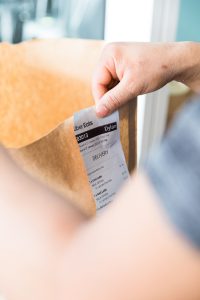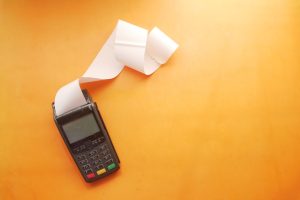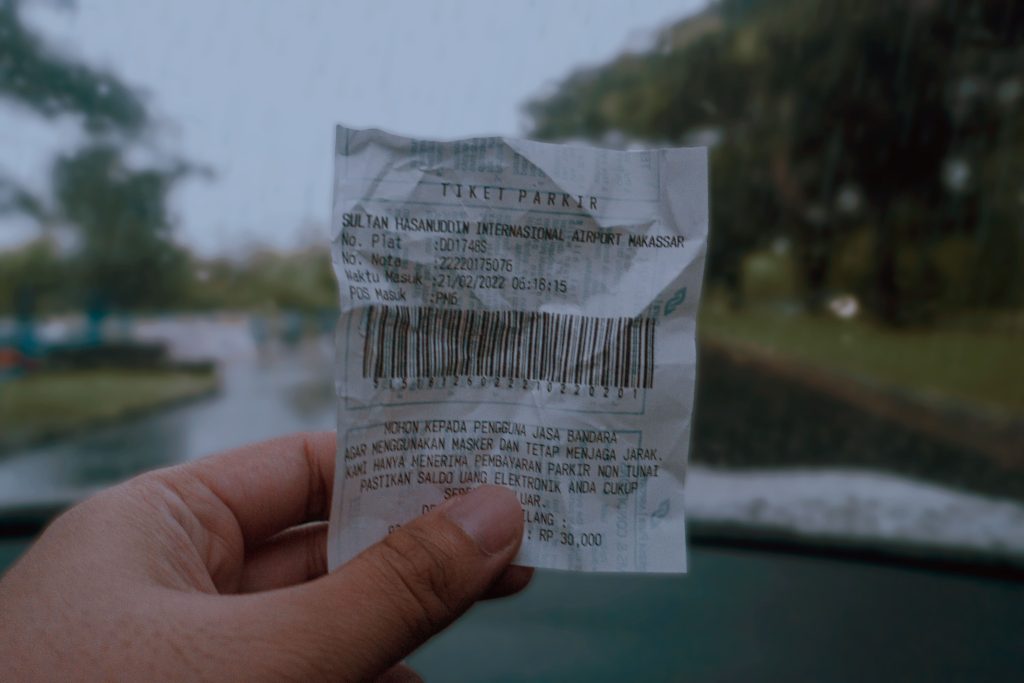Receipts are a ubiquitous part of everyday life. They are the small pieces of paper we are handed after every purchase, from a cup of coffee to a new car. While they may seem insignificant, receipts can contain sensitive information that should be handled carefully. Improper disposal of receipts can lead to identity theft, fraud, and other serious consequences. Additionally, receipts contribute to the growing problem of waste and pollution.
As consumers, we must consider how we handle and dispose of our receipts properly. In this article, we will explore what to do with old receipts, which receipts should be kept and thrown away, and creative ways to repurpose old receipts. We will also discuss the best methods for disposing of receipts to protect our personal information and the environment.
Contents
Why it’s essential to dispose of receipts properly:
Receipts can contain sensitive information like credit card numbers, bank account details, and other personal data. Discarded receipts can be a goldmine for identity thieves and other criminals. If this information falls into the wrong hands, it can be used for fraudulent activities, including unauthorized purchases and opening new accounts in the victim’s name. This can result in significant financial losses and damage one’s credit rating.
Improper receipt disposal also has an impact on the environment. Many receipts are made from thermal paper, which contains certain chemicals that make recycling with other paper products difficult. This means that when receipts are thrown away, they contribute to the growing waste and pollution problem. According to Recycle Nation, thermal receipts cannot be recycled at the plant with other paper, instead requiring a separate system. This means that proper disposal of receipts is crucial not only for personal privacy but also for the health of our planet.
What receipts to keep:
While it’s essential to dispose of receipts properly, there are certain types of receipts that you should keep for record-keeping purposes. Here are some examples:
- Tax-related receipts: Receipts for expenses you can deduct on your income tax return should be kept for at least three years.
- Warranty receipts: If you purchase a product with a warranty, keep the receipt in case you need to claim it.

- Large purchases: Receipts for large purchases, such as appliances, electronics, or furniture, should be kept in case you need to prove ownership or in case of a warranty claim.
- Business expenses: If you own a business, you should keep all receipts related to your business expenses for tax purposes.
- Insurance claims: Keep receipts for any repairs or purchases related to an insurance claim. This will help you prove the value of the items in case of future claims.
By keeping these receipts, you can protect yourself in case of disputes, warranty claims, or tax audits. Remember to keep them safe and organize them for easy reference.
What receipts to throw away:
While keeping certain receipts for record-keeping purposes is essential, many receipts can be safely thrown away. Here are some examples:
- Grocery receipts: They can be discarded unless you need them for expense tracking or returns.
- Coffee shop receipts: Similarly, receipts for small purchases like coffee or snacks can usually be thrown away.
- Gas station receipts: They can be safely disposed of unless you need them for expense tracking or reimbursement.

- ATM receipts: Once you’ve confirmed that your transaction was successful, there’s no need to keep the ATM receipt.
- Bank statements and credit card statements: While you should keep these for a certain period of time for record-keeping purposes, once you’ve reviewed them and reconciled your accounts, you can safely dispose of them.
Remember, even though some receipts can be safely thrown away, it’s essential to dispose of them properly. Whenever possible, choose to recycle your receipts. Check with your local recycling facility if you’re unsure whether a receipt is recyclable.
Creative uses for old receipts:
Instead of throwing away old receipts, there are many ways to repurpose them. Here are a few creative ideas:
- Scrap paper: Instead of buying notepads, use the back of old receipts as scrap paper for writing down notes, grocery lists, or to-do lists.
- Art projects: Old receipts can be used as part of art projects. For example, you can create collages by gluing receipts onto a canvas or piece of cardboard.
- Bookmarks: Cut old receipts into strips and use them as bookmarks for your favorite books.
- Gift tags: Cut old receipts into small squares and use them as gift tags for presents.
- Wall art: Create a unique piece of wall art by arranging old receipts into a pattern or design and framing them.
These are just a few examples of how you can repurpose old receipts.Plus, repurposing old receipts is an eco-friendly way to reduce waste and use something that might otherwise be thrown away.
How to dispose of receipts properly:
Now that you know which receipts to keep and which to throw away, you must dispose of them properly to protect your personal information and the environment. Here are a few methods for disposing of receipts properly:
- Shredding: If you have physical receipts that contain sensitive information, such as credit card numbers, it’s best to shred them before throwing them away. This will prevent identity theft and ensure your personal information stays private.
- Securely deleting digital receipts: If you receive digital receipts via email or a mobile app, securely delete them from your device. This means permanently deleting them from your device’s memory and any cloud storage accounts.

- Recycling: While most paper receipts can be recycled, thermal paper receipts cannot be recycled and must be disposed of in the regular trash. Check with your local recycling facility to see if they accept paper receipts and have any specific instructions for disposal.
- Use digital receipts: Opt for digital receipts instead of paper receipts whenever possible. This reduces paper waste and minimizes the risk of sensitive information being exposed.
By following these methods, you can ensure that your personal information stays safe and that you do your part to protect the environment.
what to do with old receipts
Proper receipt disposal protects your personal information and reduces environmental impact. With the prevalence of receipts in our daily lives, it’s essential to know which receipts to keep and which to throw away and dispose of them appropriately. You can ensure your information is safe by shredding sensitive receipts, securely deleting digital receipts, and using digital receipts when possible. Additionally, you can reduce waste and environmental impact by recycling paper receipts and finding creative ways to repurpose them. Let’s all do our part to dispose of our old receipts responsibly and environmentally.
More Posts :





